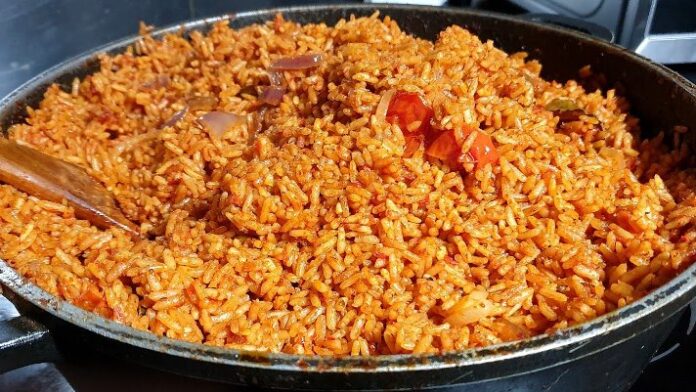In the third quarter of 2025, the average cost of making a pot of jollof rice decreased somewhat by 3.17 percent across key Nigerian cities. as per the most recent National Jollof Index published by SBM Intelligence.
Millions of households still battle with excessive food costs, the company pointed out, notwithstanding this little drop. The apparent relief reflects statistical Adjustments instead of real price cuts.
According to the study, the recent rebasing of Nigeria’s Consumer Price Index (CPI), changing the reference year from 2009 to 2024, affected how inflation is reported.
Under the updated approach, the year-on-year food inflation rate for July 2025 was recorded at 22.74 percent, against 39.53 percent in July 2024.
SBM made clear that although the fall looks substantial, it has no bearing on lower market prices as it only compares against already inflated 2024 numbers.
The organization warned that an overreliance on these technical figures could create a policy credibility gap, diverting focus from the deeper structural challenges driving persistent food inflation.
Among the key drivers of high prices, SBM identified insecurity, poor infrastructure, and widespread extortion on major trade routes as critical factors inflating logistics costs.
Truck drivers and traders, the report noted, often pay multiple informal levies ranging from ₦5,000 to ₦20,000 per checkpoint, in addition to security fees for private escorts that can cost as much as ₦50,000 per trip.
These costs are then transferred to consumers, raising food prices by up to 30 percent. SBM described these charges as a hidden tax on commerce and a sign of government failure to protect transport corridors.
Regionally, prices increased in the Northwest; Kano noted ₦30,950 for a pot of jollof rice. Early harvests drove prices in Bauchi down from ₦41,050 to ₦34,750, therefore causing a steep decline in the Northeast. Prices in the Southeast were among the highest, particularly in Port Harcourt, where a pot cost ₦33,200.
SBM urged the Federal Government to give rebuilding security in agricultural areas first priority and to declare an emergency on major roads to expose extortion networks that keep undercutting food affordability throughout.



